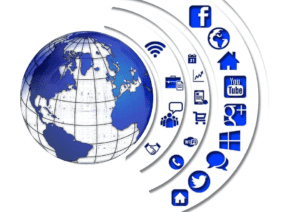Staying Connected with Senior Loved Ones Living Far Away

An estimated 15 percent of the 34 million Americans who care for older parents live an hour or more away from their loved ones, and nearly one-third of those helping someone a distance away care for someone with Alzheimer’s disease or dementia. Even if we know that our parents are in good hands and are staying in the best assisted living omaha ne has to offer, we still overthink about how they are and if they’re ok. We don’t have transporter technology to teleport when our seniors need help, but technological advances have made it easier to care for those family members who don’t live within easy driving distance.
Capitalize on the 21st Century
Stay connected while caring for your aging parent with technology. AARP recommends the following devices, reminders, trackers, and other systems:
- Wearable GPS trackers. You can set the tracker to alert you, via phone, text, and email, when your loved one goes outside a specific area.
- Wearable Personal Emergency Response Systems (PERS). These medic alerts allow users to push a button that connects them with a call center when they need help.
- Home monitoring systems and smart homes. These wireless systems alert you if something unusual occurs. You can automate home safety and make appliances smart.
- Senior computer systems. If you’re considering a senior-friendly system for your loved one, here’s the 2018 list of top 10 senior laptops.
Apps for Caregiving
The following apps help manage the logistics of long-distance caregiving and are free downloads for iPhones and Android.
- AARP Caregiving: Monitor symptoms, coordinate care with others, and track appointments and medications.
- CareZone: Track appointments and medications and find info relevant to diagnosed illness, disability, or condition.
- Alzheimer’s Caregiver Buddy: Helps caregivers manage their own stress, navigate family conflicts, and reach help 24/7. Includes daily care tips and activities to stimulate the mind.
- Care.com: A database of caregivers for respite care.
- Elder 411: Offers home safety tips, communication tips, and ideas for stress management. iPhone only.
- First Aid by American Red Cross: Basic info on first aid and CPR. Helps identify health issues by interpreting symptoms — helpful if an elderly person can’t describe what they’re experiencing.
- iPharmacy Pro: Identifies medications, tracks prescriptions, and identifies drug interactions.
- CaringBridge: Facilitates communication between caregivers, family, and friends. Enables multiple people to track appointments, health changes, and other info.
- Caring Village: Enables communication among multiple caregivers. Includes central calendar, document storage, wellness journal.
- eCare21: Provides 24/7 patient monitoring through wireless and wearable devices like a smart watch, Bluetooth, and FitBit. Read this review from Forbes.
- Medisafe: Manages medication.
Services for Long-Distance Care
It’s a difficult conversation to broach, but as your loved ones age — and preferably before a crisis — ask them to share with you their important information: doctors and contact info, records, email addresses, and passwords.
This downloadable PDF from Family Caregiver Alliance will help you collect the information you need to communicate with government agencies like the VA or Social Security, financial institutions, and your parent’s attorney. You can also store health and emergency information in one location with Mayo Health Manager.
Connect to community organizations where your loved one lives and seek support from senior care referral organizations like A Place for Mom, which employs over 400 advisors throughout the US and Canada trained to help you find the best living arrangements for your loved ones.
Seniors Struggling with Current or Past Addiction
Seniors aren’t immune to substance abuse, and when an older family member’s addiction causes rifts within the family, it’s hard to mend fences. It’s even harder when you’re separated not just by time, but distance, too.
It’s never too late to try to reconnect with a loved one struggling with addiction. Reach out, be honest and direct about what you want and hope for, and be patient. Try to separate the disease from the person. Accept the past; don’t insist your loved one continue to pay for past mistakes. Live in the present — and when issues arise, deal with them, and then move on.
What the Future Holds
Technology is evolving to meet caregivers’ changing requirements and demands, especially as the senior population grows. The market has already expanded considerably to accommodate the need for newer, improved tools that support caregivers and enable them to monitor their loved ones’ health more efficiently and effectively.
If you have concerns about the healthcare needs of a loved one, you may be interested in learning about FreedomCare. CDPAP, or the Consumer Directed Personal Assistance Program, is a New York State Medicaid initiative that provides people who require home care services with additional ways to receive care. FreedomCare is essentially a Medicaid-funded program that allows New Yorkers to hire their own caregivers. To discover more click here: www.Freedomcareny.com/posts/cdpap
Photo Credit: Pixabay.com
